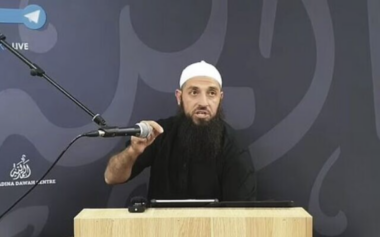New polling shows supermarkets are Australians' public enemy No. 1 in the cost-of-living crisis.
The Australia Institute’s Carmichael Centre/Centre for Future Work surveyed 1014 voters about increasing costs.
Some 83% said supermarkets deserve some blame, or a great deal of blame, for the soaring cost of living.
That puts them ahead of energy companies (82%), banks (73%) and government (71%).
Three in five (60%) respondents nominated groceries as the most noticed cost increase, far ahead of the next highest result of utilities at 21%.
There is a strong appetite among voters to increase supermarket competition, with almost two-thirds (64%) saying action in that area is very important to reducing cost-of-living pressures.
That result was mirrored by strong support for actions leading to lower utility costs (64%), lower medical costs (60%), and faster wage growth (58%).
Centre For Future Work senior researcher and report author Lisa Heap said:
"These results are emphatic. Australians are pointing the finger squarely at supermarkets as public enemy number one in the cost-of-living crisis.
"With 83% of voters assigning blame to supermarkets, it's clear Australia's supermarket duopoly is on the nose with the electorate.
"More people blame supermarkets for the cost-of-living crunch than governments or banks.
"The public's appetite for increased supermarket competition is unmistakable. Nearly two-thirds of voters see it as crucial for alleviating cost-of-living pressures.
"Australians are now demanding action on supermarket competition with the same urgency as they're calling for lower utility costs and higher wages.
"There's likely to be political rewards for taking actions that increase supermarket competition."
The cost-of-living crisis is also leading people to spend less on essential services:
* 37% spent less on heating/cooling home
* 29% spent less on healthy food
* 26% spent less on going to the doctor
And 26% of respondents supplemented their income by drawing down savings or superannuation.
The polling was commissioned by the Centre for Future Work at the Australia Institute, which is hosting a one-day symposium on the crisis in living standards in Australia, and how to address it through greater investments in wages, public services, and affordable housing and energy.
The symposium runs from 9am to 4.30pm at the Queen Victoria Women’s Centre, 210 Lonsdale Street in Melbourne.
It will feature presentations from some of Australia’s leading economic and social policy researchers. Media are invited to attend.
The polling evidence indicates that cost of living pressures are having a disproportionate impact on Australians who can least afford it: including low-income households, people receiving income supports, and women.
That is making inequality even worse.
It also indicates the importance of responding to cost of living challenges with a suite of measures to make life more secure and affordable – not just using high interest rates to attack inflation, which for many Australians has only made the crisis worse.
Read the full report here.
Contact details:
Matt Coughlan 0400 561 480 / [email protected]

